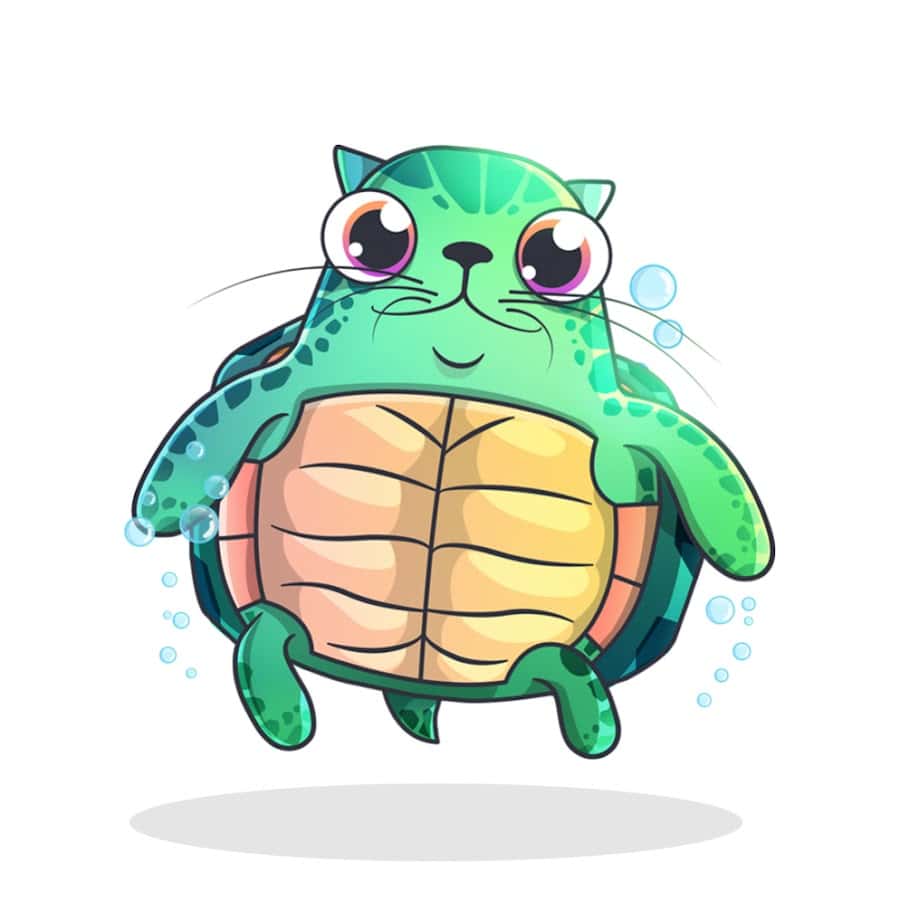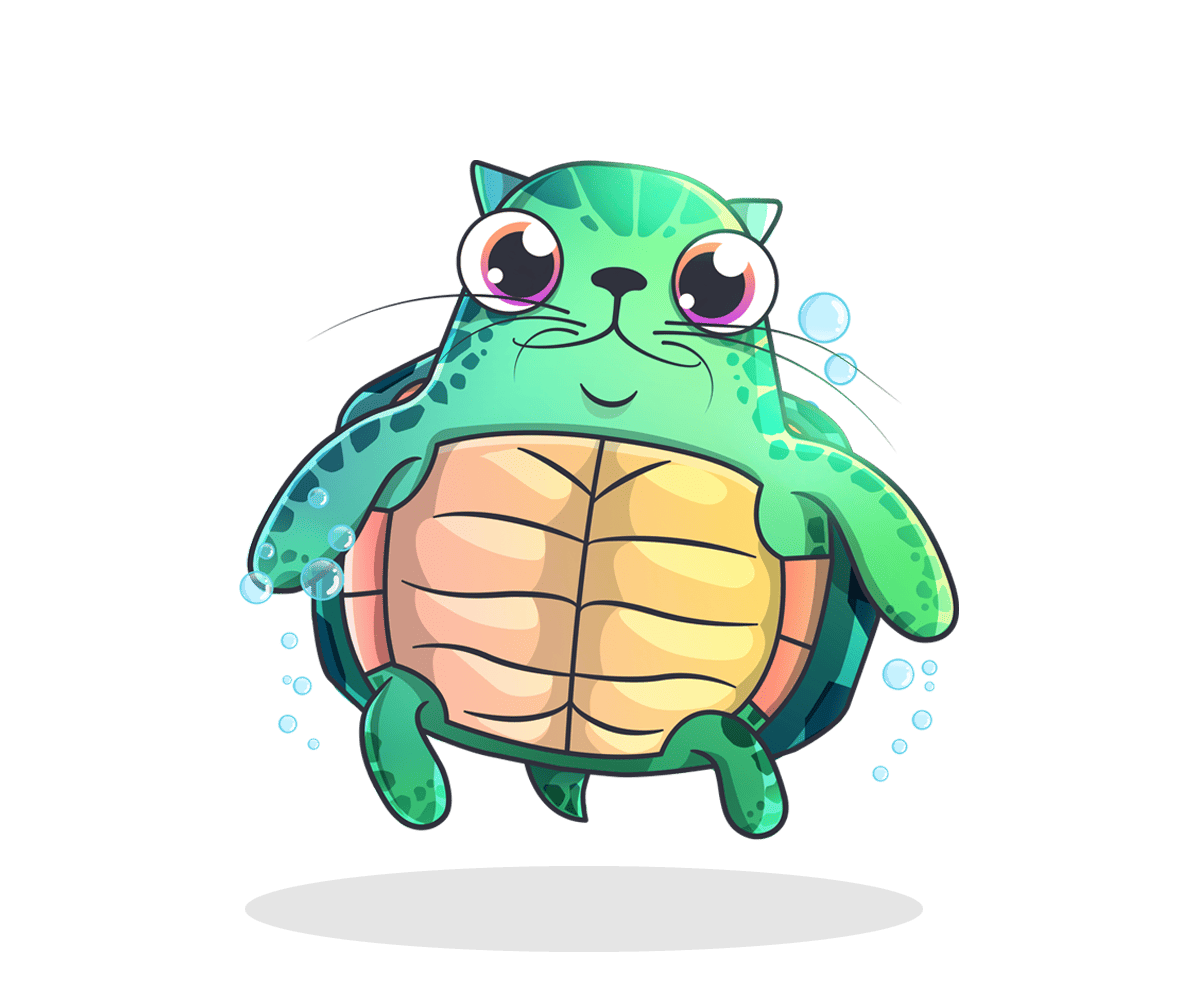You know how on your phone you can have many different apps? There’s Facebook and Instagram and Gmail and Youtube, they are all applications that run code that was created by the company so that you could interact with their company.
Well, a dApp, or decentralized application is very similar in how it works. Except, instead of reporting back to Facebook’s servers or TikTok’s Servers—this app reports back to the blockchain. You’re simply interacting with the blockchain through the app.
First, we’re going to go over some benefits of dapps and then we are going to cover the types of them, including specific examples.
What are dApps?
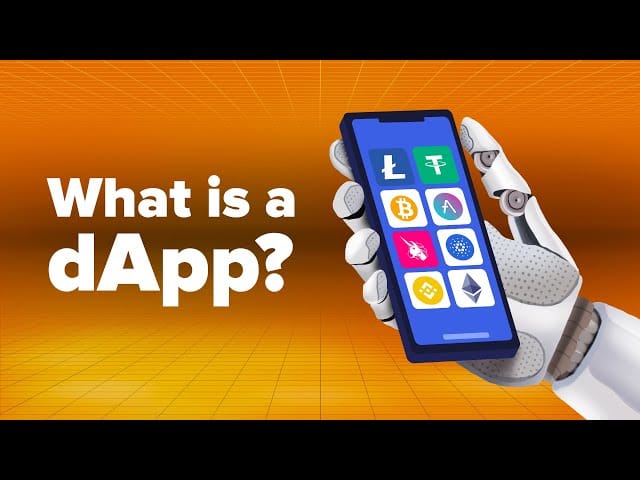
dApps can only be built on smart contract networks. This means a blockchain like Bitcoin can’t utilize dApps because Bitcoin was designed to only allow the sending of it’s native coin.
Ethereum, however, can utilize smart contracts, which is code that makes up a program to be ran so that it can do more complicated things. In short, smart contracts allow two people to make an agreement written in code so that they don’t have to trust a third part to follow through—they can trust the code.
Since the code is out there to be ran, it is what we call “open-source” which means anyone can look at the code. This allows a lot more trust to be given to the application.
We can’t really look at how Facebook recommends us friends to interact with, or how Google knows what we ate for dinner, but with any smart contract, you can look at the code and see exactly how it works—a big benefit over centralized applications.
dApps are also “censorship resistant”. This is a fancy way of saying they don’t answer to governments, corporations, or people. If the smart contract is coded to do something, and it is triggered, nobody can stop it.
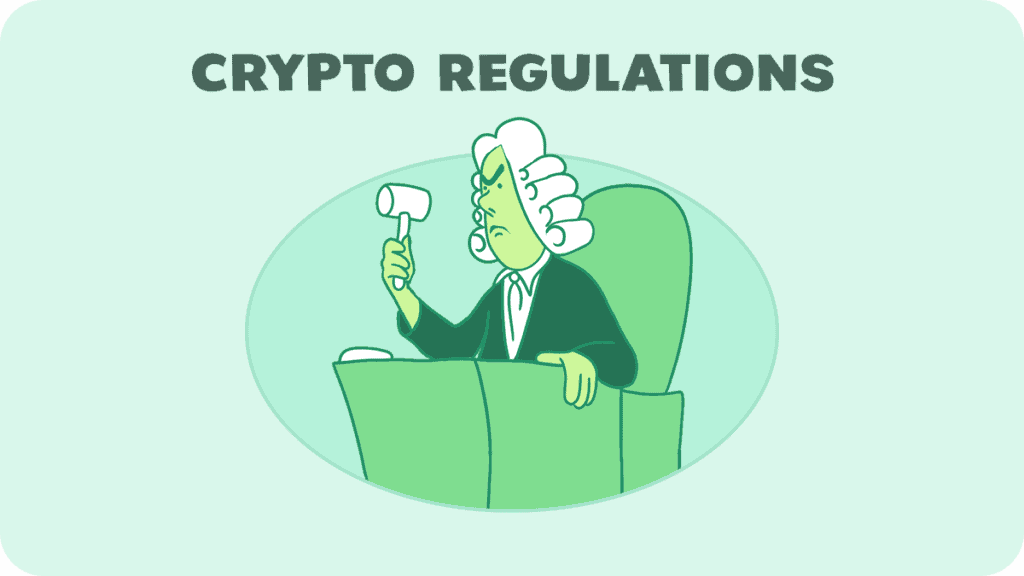
Naturally, this is good and bad, but it is really important for financial applications—nobody can control your money. In history, governments that have done a lot of bad things have the control of their citizen’s money.
There have also been cases where Facebook or Twitter can ban or censor certain people based on their views, a decentralized application wouldn’t allow this.
Another big benefit of dApps is that they will essentially never go offline. There’s been times when I’ve actually seen Facebook or Youtube down—their servers have a bug or an outage and they don’t work.
Since dApps run on the blockchain, they will never go down because they are run by hundreds of thousands of computers around the world. It would be infeasible to turn them all off, if not impossible.
So now you know what makes dApps so cool, let’s get into some examples of them.
Decentralized Financial dApps
There are many decentralized applications that provide a way for people to invest in something called Decentralized Finance. Decentralized Finance, or DeFi is a new monetary protocol that uses the blockchain to allow investors to do new things and even old things with their money with a ton of new benefits.
Let’s go over some ways a dApp may use your money.
Borrowing and Lending
There are a bunch of dApps that are meant for borrowing and lending. One popular one is AAVE.
AAVE is a platform that allows any user to deposit their ETH or MATIC tokens to certain smart contracts. When you deposit your coins and tokens, you actually receive an interest rate on them, allowing you to essentially invest them.
AAVE also allows you to borrow tokens, if you have enough collateral already deposited. Without going too in depth, this allows you to borrow at different interest rates and even create margin positions.
Providing Liquidity
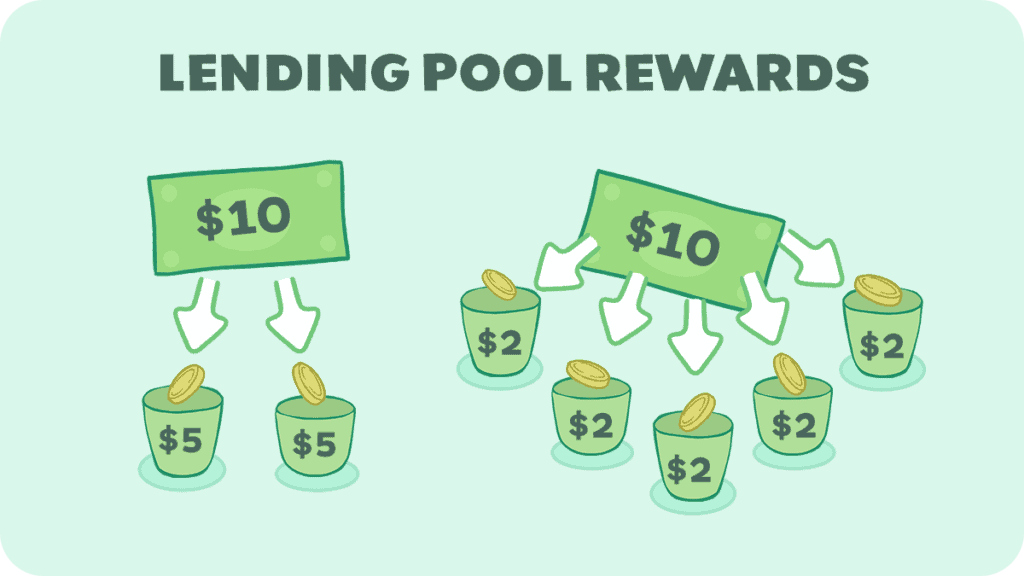
Providing Liquidity is a complicated idea but we will make it simple. In short, there isn’t much money in the tokens out there to trade.
So investors can buy tokens, and invest them in a liquidity pool which allows other people to trade back and forth using their tokens. The traders pay a small fee that allow the investors to earn a return for their investment.
Exchanges
As I mentioned, allowing traders a way to actually buy and sell tokens is one of the issues in the decentralized finance world. Exchanges (DEXes) are decentralized applications that allow traders to trade some tokens for another token, with low fees, almost instantly, and without needing any background check or identification verification.
You can sell a million dollars of ETH without anyone blinking an eye using one of these dApps.
Game dApps
Of course there are going to be games. I mean, programmers are the ones creating these dApps, they are going to find a way to gamify the space.
Some of these allow you to buy and sell NFT assets. So for instance, your character is an NFT. When you level them up, the NFT gets specific attributes, and then you could sell the NFT for a higher price because it is already advances. Some goes for gear, weapons, or other items.
Other games will give you tokens for beta testing them. This is a little riskier, and we definitely recommend not downloading software independently. Safe games will list on the Epic Games store, which allows blockchain-based games.
Cryptokitties
Cryptokitties is a dApp that allows you to buy these little kitties. Technically what you are buying is the NFT data of rights to that certain token that represents that kitty.
However, the fun part of the game is that you can collect these kittens and even breed them to create more kittens. Older generation kittens are usually more valuable, and you can sell them for a profit or loss if you play the game long enough.
Even more so, you can rent out your kitten to breed with someone else’s kitten as a strange form of passive income on the blockchain.
Zed Run
Moving on, we want to share a game called Zedd. Zedd is technically a gambling application, since you buy NFTs that represent horses and race them.
Each horse has specific skills and a point system. Every race is recorded on the blockchain, so you can see all the races, including what races your horses have won or lost. This game went viral for a while because it combined the psychological pulls of gambling with the virality of a blockchain game.
Gambling
Just like Zed is technically a gambling app, there is an absolute massive list of blockchain gambling sites out there that are technically decentralized applications.
There are dApps that allow you to play games like Poker, Slots, and Roulette, along with simple betting ideas like dice rolling or coin tossing. You can code the application so the house always wins, even if by 1%, but people LOVE to play.
Tracking Apps
There are many web applications out there that read smart contract data and information to display it to you.
Technically these aren’t dApps, as they are usually centralized and hosted on a single web server and don’t use or require the blockchain-specific code to work… however they do read the data from the blockchain, so we thought they deserved a spot on this list.
ZapperFi
ZapperFi is a website that collects information about wallets you have and displays it all on one page. Not only will it look at all the major dApps out there and find out how much money or coins you have, it will do it for many networks.
ZapperFi is one of my favorites because it’s free to use and I can see a dashboard of my entire blockchain portfolio in one place. There are many different applications like ZapperFi, but we thought we’d share the one we used.
Marketplaces
Cryptokitties
Even though we put cryptokitties in the game category, it deserves it’s own spot in the marketplace category.
Cryptokitties have proven themselves to be an asset that people went crazy over in the last few years. The price of some have skyrocketed, and their dApp that allows you to buy and sell these NFT kitties is paving the ground for mass adoption.
Rarible
Rarible and airNFTs are two marketplaces for NFTs that allow you to buy, sell, and even create new NFT art that you can sell. The platforms, or applications facilitate this process and allow the interaction with the blockchain so an everyday person can use it.
Bidali
Lastly, as an example of a marketplace dApp, we have Bidali. Bidali is a decentralized application that allows you to buy things using crypto. One of their main products is giftcards, which they can deliver anonymously.
Remember, when you buy stuff with crypto in the US, it is currently reported as a sale and you must pay taxes, although Bidali does not report to the IRS, so the liability is in your hands.
Educational
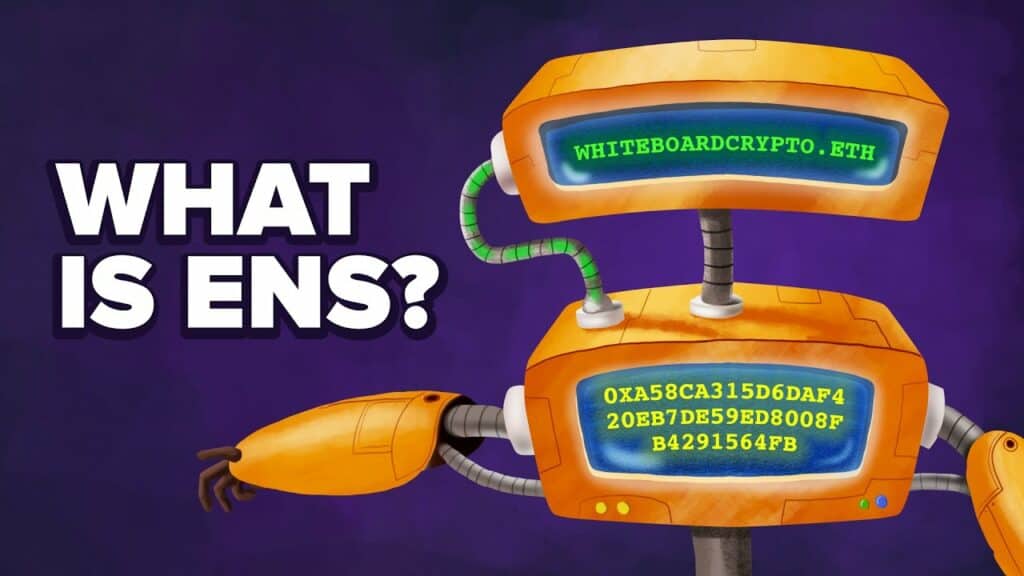
ENS
One last dApp that doesn’t really fit into any of these categories is ENS. ENS stands for Ethereum Name Service and we actually have an entire video explaining how it works.
In short, it turns those long Ethereum addresses into any address you want. For example, we own whiteboardcrypto.eth so if you send any coins or tokens there, it will go to our wallet.
Conclusion
As we end this article, you need to know that the categories we listed are just the major ones we wanted to share. This space is incredibly new and there are new dApps being built every day.
In fact blockchain developers are one of the highest paid jobs this year, simply because there is so much money being poured into the space and there is a lack of people knowing how to code it. The sky’s the limit and we truly believe this space has a lot of potential for positive growth.
Maybe, some of the best developers that will ever be may use our videos as resources to learn and be inspired, that is our goal.
Thanks for reading, we hope you learned something, and we really hope you enjoyed it!
